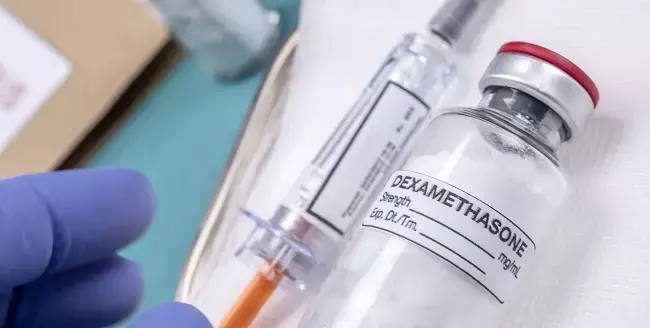- Home
- Medical news & Guidelines
- Anesthesiology
- Cardiology and CTVS
- Critical Care
- Dentistry
- Dermatology
- Diabetes and Endocrinology
- ENT
- Gastroenterology
- Medicine
- Nephrology
- Neurology
- Obstretics-Gynaecology
- Oncology
- Ophthalmology
- Orthopaedics
- Pediatrics-Neonatology
- Psychiatry
- Pulmonology
- Radiology
- Surgery
- Urology
- Laboratory Medicine
- Diet
- Nursing
- Paramedical
- Physiotherapy
- Health news
- Fact Check
- Bone Health Fact Check
- Brain Health Fact Check
- Cancer Related Fact Check
- Child Care Fact Check
- Dental and oral health fact check
- Diabetes and metabolic health fact check
- Diet and Nutrition Fact Check
- Eye and ENT Care Fact Check
- Fitness fact check
- Gut health fact check
- Heart health fact check
- Kidney health fact check
- Medical education fact check
- Men's health fact check
- Respiratory fact check
- Skin and hair care fact check
- Vaccine and Immunization fact check
- Women's health fact check
- AYUSH
- State News
- Andaman and Nicobar Islands
- Andhra Pradesh
- Arunachal Pradesh
- Assam
- Bihar
- Chandigarh
- Chattisgarh
- Dadra and Nagar Haveli
- Daman and Diu
- Delhi
- Goa
- Gujarat
- Haryana
- Himachal Pradesh
- Jammu & Kashmir
- Jharkhand
- Karnataka
- Kerala
- Ladakh
- Lakshadweep
- Madhya Pradesh
- Maharashtra
- Manipur
- Meghalaya
- Mizoram
- Nagaland
- Odisha
- Puducherry
- Punjab
- Rajasthan
- Sikkim
- Tamil Nadu
- Telangana
- Tripura
- Uttar Pradesh
- Uttrakhand
- West Bengal
- Medical Education
- Industry
Intraoperative dexamethasone may reduce morbidity after Adenotonsillectomy in children

Adenotonsillectomy is routinely performed for children with sleep-disordered breathing or recurrent infectious tonsillitis. In children undergoing adenotonsillectomy, dexamethasone decreased the early postoperative pain and postoperative nausea and vomiting (PONV) without increasing postoperative hemorrhage suggests a study published in the journal Medicine.
Adenotonsillectomy is one of the most common surgical procedures in children, and the incidence appears to be increasing. Nevertheless, post-adenotonsillectomy pain, as well as PONV, remains a significant clinical problem. A recent survey identified that pain associated with adenotonsillectomy was a top concern for over 90% of surveyed parents. However, despite a large body of evidence regarding dexamethasone for tonsillectomy, many ENT surgeons are reluctant to use intravenous dexamethasone for children in real-clinical settings. Because of ideas of whether dexamethasone may be associated with an increase in bleeding risk and endocrine disorder, as well as immune system suppression. Therefore, researchers of the Chungbuk National University College of Medicine, Korea conducted a study to assess the impact of intraoperative intravenous dexamethasone on the reduction of postoperative morbidity in children undergoing adenotonsillectomy.
It was a prospective, double-blind, randomized controlled study in 105 children who underwent adenotonsillectomy at a tertiary hospital in Korea from November 2018 to June 2019. The researchers randomly assigned the children to receive either dexamethasone (0.5 mg/kg, maximum dose 24 mg) or placebo intravenously after induction of anesthesia. The major outcome assessed was the reduction of postoperative pain and postoperative nausea and vomiting (PONV). Researchers also assessed for adverse effects like postoperative hemorrhage.
Key findings of the study were:
• Researchers found no significant difference between the groups in terms of demographic data, operation time or in pain scores.
• They noted that the average pain visual analog scale (VAS) during the study period (day 0–7) was 3.67 ± 1.59 and 4.40 ± 2.01 in the dexamethasone group and control group, respectively.
• On comparing the early pain VAS (day 0–2) and late pain VAS (day 5–7), they found that the dexamethasone group had significantly lower early mean VAS compared to the control group (4.55 ± 1.78 vs 5.40 ± 2.05).
• They also found that the mean VAS for PONV was significantly lower in the dexamethasone group than in the control group (1.89 ± 2.22 vs 3.00 ± 2.37).
The authors concluded, " intravenous single-dose dexamethasone in children undergoing adenotonsillectomy can significantly reduce postoperative pain in early postoperative days. Moreover, it can reduce postoperative nausea and vomiting significantly".
They further added, "This study suggests that intraoperative dexamethasone in children undergoing adenotonsillectomy could achieve adequate postoperative analgesia and antiemetic without side effects".
For further information:
Medical Dialogues Bureau consists of a team of passionate medical/scientific writers, led by doctors and healthcare researchers. Our team efforts to bring you updated and timely news about the important happenings of the medical and healthcare sector. Our editorial team can be reached at editorial@medicaldialogues.in.
Dr Kamal Kant Kohli-MBBS, DTCD- a chest specialist with more than 30 years of practice and a flair for writing clinical articles, Dr Kamal Kant Kohli joined Medical Dialogues as a Chief Editor of Medical News. Besides writing articles, as an editor, he proofreads and verifies all the medical content published on Medical Dialogues including those coming from journals, studies,medical conferences,guidelines etc. Email: drkohli@medicaldialogues.in. Contact no. 011-43720751


